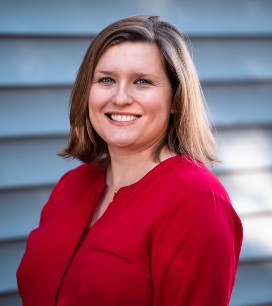Molly Schroeder, PhD, on WGS as an Alternative to Cytogenetics in AML, MDS

In an interview with Oncology Learning Network, Molly Schroeder, PhD, FACMG, Assistant Professor of Pathology and Immunology, Washington University School of Medicine, St. Louis, Missouri, spoke on the findings and significance of a study on genome sequencing as an alternative to cytogenetic analysis in myeloid cancers (N Engl J Med. 2021;384:924-935).
What existing data led you and your co-investigators to conduct this research?
Our team is interested in developing innovative and practical clinical laboratory testing approaches to cancer. This project focuses on acute myeloid leukemia (AML) and myelodysplastic syndrome (MDS). Physicians treating these disorders currently rely on a set of laboratory tests to determine which patients require aggressive treatment, including stem cell transplant, and which are likely to do well with only chemotherapy.
It currently takes multiple lab tests utilizing a range of testing modalities to characterize all the possible genomic changes relevant to distinguishing between these patient groups. This is because the genomes of the diseased cells can acquire various classes of mutation: loss and gain of whole chromosomes or large segments of them, structural rearrangements, small SNVs and indels, and no conventional assay is able to detect them all. The conventional suite of tests—karyotyping, FISH, and focused sequencing assays—are powerful, but require significant sample input, including cells that are amenable to culture for karyotyping, and workflows where samples are sent to multiple labs and the information returns on several separate reports. It’s not infrequent for there to be inconclusive results for some of the testing.
Research studies have shown that whole-genome sequencing (WGS) is capable of detecting all the variant types analyzed by conventional testing, but it has not been widely adopted in clinical laboratories because the workflow and analysis have been costly and time consuming. People have not considered it practical in a clinical setting.
We set out to develop a fast and economical WGS based assay, which we call ChromoSeq, that provides all the genomic information required to accurately stratify patients into the risk groups established by existing practice guidelines.
Please briefly describe your study and its findings. Were any of the outcomes particularly surprising?
We applied our ChromoSeq assay to 263 patient samples and compared the results to those from conventional testing, and found it performed at least as well as conventional cytogenetic studies.
All of the recurrent translocations and copy number alterations detected by karyotype were detected. When we applied sequencing to our prospective cohort, we found that ChromoSeq provided clinically relevant genomic information not detected in conventional testing in almost a quarter of patients. This information changed the risk category for 16%. When we classified the AML patients into risk groups using the information from sequencing, we found that they correlated with clinical outcomes.
Crucially, our study demonstrated that these data can be generated at a competitive cost and speed. Our median turnaround time for the prospective cohort was 5 days and the technical sequencing costs were about $1,900, which is comparable to conventional testing. Since we know that sequencing costs continue to drop, we expect it will become even more cost-effective to use this method of providing accurate genomic information for patients.
What are the possible real-world applications of these findings in clinical practice?
This study demonstrates that tumor-only WGS-based testing is a practical and reliable means for detecting all of the types of genomic variation that are necessary for risk stratification for patients diagnosed with AML and MDS. It is an approach that can be successful when conventional testing for myeloid malignancies may fail; for instance, when there is limited sample or barriers to rapid transfer of sample to a lab for cell culture. Unlike karyotyping, ChromoSeq does not require dividing cells for analysis, and unlike FISH, it profiles the genome from a small amount of DNA. This means that fewer patients will receive inconclusive results and more often, their physicians will be able to make treatment plans informed by the patient’s risk category.
We believe that this approach will be successful for other cancer types, including solid tumors that can be challenging to analyze by karyotype. The wet-bench and sequencing components of the workflow would not need to be altered, which allows a lab to keep throughput high, and the bioinformatics pipeline can be tailored to assess the regions of the genome that are clinically important for that disease or tissue type.
Do you and your co-investigators intend to expand upon this research? If so, what are/will be your next steps?
We are excited to begin offering the ChromoSeq assay to patients with AML and MDS treated at Siteman Cancer Center and as part of clinical trials.










